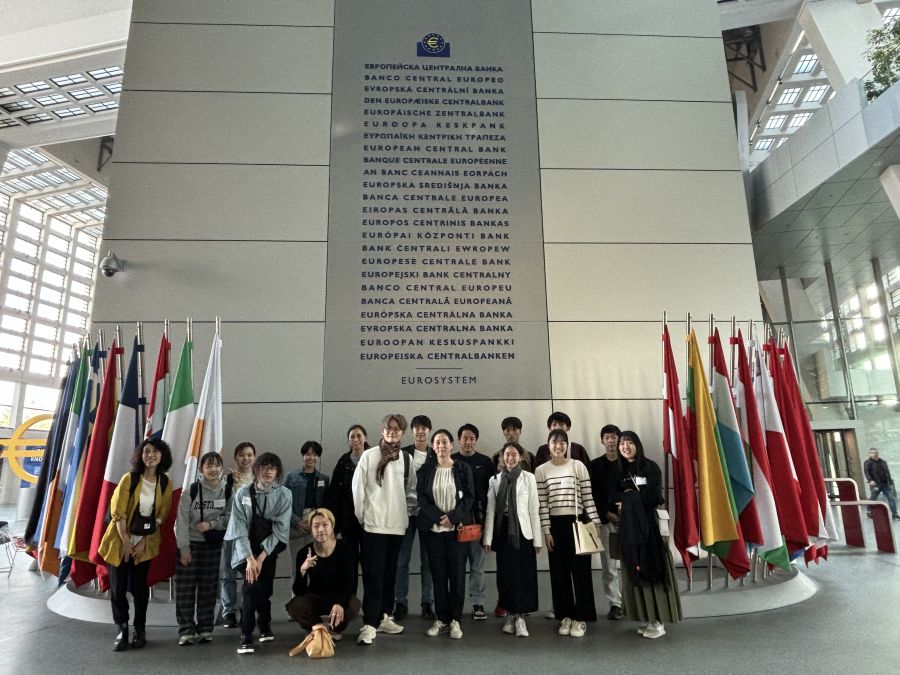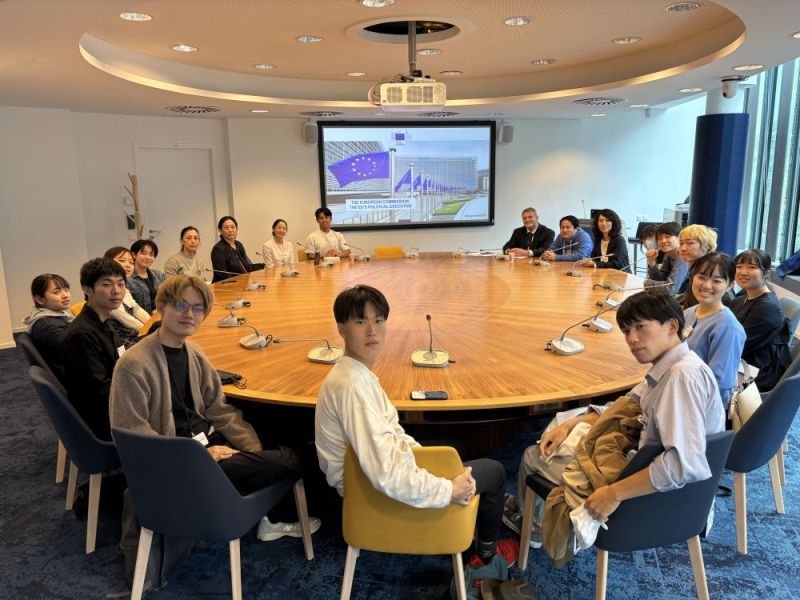

Kyushu University EU Centre conducted on 17-25 September 2024 the EU Study Tour 2024. This is the second tour within the framework of the Jean Monnet CoE Programme following the tour held in 2019.
15 selected students visited the two countries, Germany and Belgium, where they took part in an intensive training programme. This included visits to EU institutions, meetings with businesspeople who graduated from the Kyushu University (KU) international course, and a student exchange programme at Ghent University in Belgium.

Associate Professor Tomomi Shiosaki (Faculty of Economics, KU), one EU Centre staff member, and a JTB tour guide accompanied the group for the entire itinerary, and various measures were adopted to ensure a safe and secure trip. Three pre-training sessions were held, including lectures on the organization and history of EU institutions by Prof. Shiosaki, and on the EU from the perspective of law by Prof. Mark Fenwick (Faculty of Law, KU).
The group entered Europe from Frankfurt, Germany, a centre of the European economy, and visited the ECB (European Central Bank), the Deutsche Bundesbank Money Museum, and the head office of Deutsche Bank, where they learnt about monetary policy and price stability initiatives, including those to combat inflation, within the EU, and gained an understanding of the impact of EU policies on national economies. In Brussels, Belgium, the political capital at the heart of the EU, the participants visited the European Commission, the European Parliament, and the EACEA (European Education and Culture Executive Agency) to gain a deeper understanding of the policy-making process from a historical and legal perspective, and how EU Member States and EU institutions work together to promote Europe as a whole.
At Ghent University in Belgium, the students were welcomed at a reception party organised by local students and deepened their friendship during a city tour, visiting the castle and other sites in the ancient city of Ghent. Following lectures by Ghent University lecturers and group presentations, there was a discussion in English on four highly relevant topics: environmental problems, new coronavirus infections, culture in Kyushu, and immigration issues.

After returning to Japan, a study tour debriefing session was held on 1 November with the participation of the general public. All 15 participants, including 4 online participants from overseas, gathered in a casual atmosphere while enjoying coffee and sweets as part of the Science Café activities, and spoke passionately about their achievements during their trip. Commentator Ms Machiko Hachiya, KU EU Centre Advisor, gave warm words of support to the students, who will be future leaders of a multicultural era.
The study tour was a fruitful experience that fully achieved its aim of enhancing the participants' understanding of cultural diversity in the EU, where regional integration is progressing beyond national boundaries and where they were able to come into direct contact with diverse cultures and languages.
Kyushu University EU Centre would like to express its deepest gratitude to all people involved in the planning and implementation of the JMCoE-Q EU study tour 2024 in the various visited locations.
Source: Kyushu University EU Centre
The EU-Japan Centre currently produces 5 newsletters :










Joint venture established in 1987 by the European Commission (DG GROW) and the Japanese Government (METI) for promoting all forms of industrial, trade and investment cooperation between the EU and Japan.
The EU-Japan Centre’s activities are subject to the allocation of a Grant Agreement by the European Commission for 2024-2026

